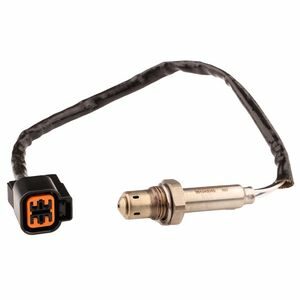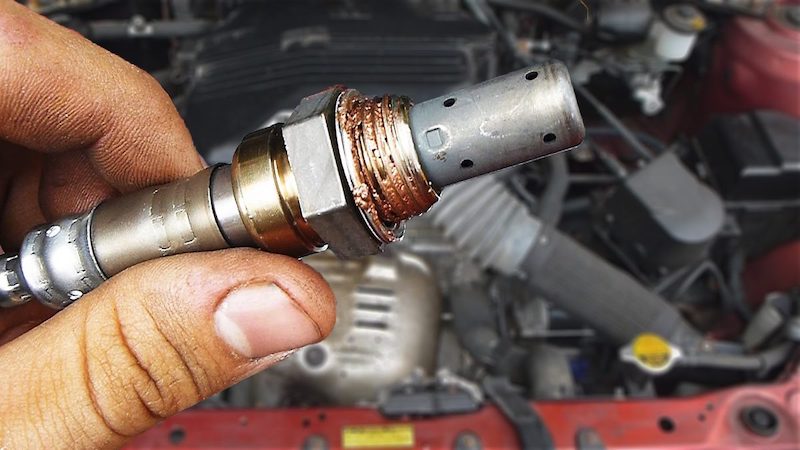Alright, so you’re in Hamilton, cruising down Greenwood Street or maybe stuck behind a line of traffic on Te Rapa Road. All the stop-start, potholes near Rototuna, and those freezing foggy mornings in winter — it’s tough on your car, eh? One part that quietly takes a hammering is your lambda sensor, sometimes called the oxygen sensor. Tiny part, big job. Let’s chat about what it does and why you should keep an eye on it.
What actually is a lambda sensor?

A lambda/oxygen sensor.
So, the lambda sensor sits in your exhaust, usually sandwiched between the exhaust manifold up near the motor and the catalytic converter a bit further down the pipe. Newer cars (think late-model Mazda CX-5s, Suzuki Swifts, or the odd Lexus hybrid) will typically have two; old-school rides like a 2002 Subaru Forester, just the one.
The job? Basically, the sensor helps your engine run sweet. It keeps an eye on how much unburnt fuel and air sneak through after combustion. Then, the engine’s computer uses this info to adjust how much petrol or diesel to squirt in. Keeps your fuel use down and helps your car get through that next WOF in Hamilton with lower emissions.
What clobbers a lambda sensor?
Now, out on the roads around Cambridge or Ngaruawahia, you might notice your little sensor’s playing up if:
- Your fuel’s disappearing faster than a sausage roll at smoko
- The engine feels rough when you go to start it, especially after a cold night in Morrinsville
- Your check engine light pops on when you drive along River Road or Avalon Drive
- Your car’s blowing out way more smoke than normal at the lights
These sensors cop a hiding over time — especially after crawling over speed bumps in Chartwell or dealing with dust after a dry, hot Hamilton summer. Common causes for drama include dodgy spark plugs, clogged air filters (we see it heaps on used hybrids from overseas), old fuel pumps (European cars like Peugeots, Renaults — happens more than you think), leaded fuel (rare these days but not unheard of), or even overfilled oil after a rushed DIY service.
Why you want to get it sorted ASAP
Here’s why ignoring a crook lambda sensor is never worth it — seen it time after time, whether someone’s brought in a Honda Fit, a BMW X3, or one of those little Toyota Vitz runabouts from Tamahere:
If the sensor gets dodgy, the engine doesn’t have a clue what air/fuel mixture it’s supposed to run. That means poor fuel economy, your car running rough as guts, and sometimes random misfires. Let it go long enough and you’ll chew through even more petrol, risk trashing your catalytic converter, and end up with a way higher repair bill. Plus, with how strict NZ emissions rules are, you could fail your next WOF Hamilton check just from high emissions. Not worth it, trust me.
On the environmental side — yeah, your car’ll be puffing more pollution out around the Waikato. No one wants that!
Lambda sensor checks or repairs in Hamilton
If you reckon your lambda sensor’s not reading right or the dashboard light has you worried, just pop in. One of our techs at Grimmer Motors can run a scan and work out exactly what’s up. We see everything here, from late-model Nissan X-Trails to the odd imported SsangYong. You’ll always get a straight answer, fair price, and a proper fix.
Keep your vehicle in top nick for the school run in Hillcrest, those weekend trips to Raglan, or the daily grind down State Highway 1. Book in quick for anything from lambda sensor swap-outs to full-on car service Hamilton. We’re here to help — and yes, we’re happy to check hybrids, SUVs, utes and your trusty family wagon.

